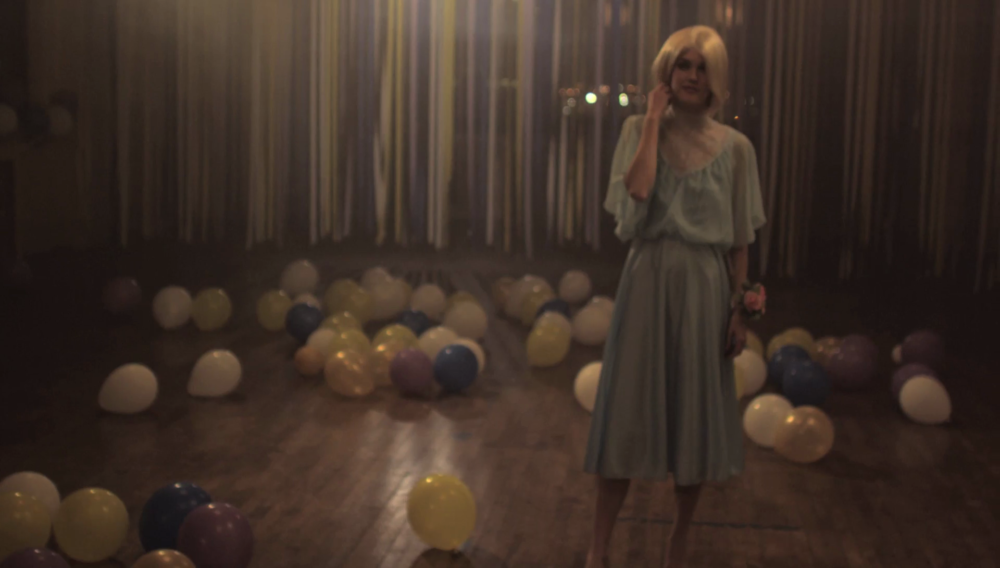
Celia Rowlson-Hall is as fascinating in front of the camera as she is behind it in Prom Night. From the moment the camera slips through the door of this room designated as the prom locale by title alone, she’s the only thing we see. Her visage moves slowly from the innocent gal at the prom, the girl you’ve always dreamed of dating, to something just as intoxicating, but more…off-beat, almost menacing. It happens every time the camera pulls away and moves back in for a close-up, with the latter emphasizing her face in a manner that calls to mind Andrzej Żuławski framed Isabelle Adjani’s face in his seminal work Possession. It’s a fitting comparison if only in the way both works utilize the movement of the body in a fascinating manner, this one through its entire duration and the other in its best-known sequence that features the actress convulsing through a subway.
But Rowlson-Hall and co-director Jae Song are less interested in creating a sequence of high action and thrills and take great pleasure in both exploiting the male gaze and creating a character who exists solely to dismantle male ideals and archetypes by becoming them. Her heavily choreographed but naturally flowing performance exists in a realm in which she and the camera—a stand in for her prom date—practically never stop moving, lending themselves well to the one-take gimmick that is so clearly broken at times through simple cuts, but never distracts from the content. She moves through roles without a care in the world, manipulating her costume ever so smartly to switch from that initial girl to unattainable figures like the Virgin Mary, Pamela Anderson’s Baywatch persona, the young seductress Lolita, the brash and exciting Madonna of the 1980s, and, well, Carrie (an inclusion that both plays to the thematic material as well as the way the voyeuristic camerawork feels reminiscent of Brian De Palma in the best way).
Where the first set of these are something that the male gaze finds appealing, there’s a sort of implicit hesitance to approach a woman who fulfills all these roles and fantasies. It’s the last of these, Carrie, that proves to be the last straw between “hot” and “crazy”, as straight men like to refer to women. Watching Rowlson-Hall pour a bowl of what looks like tomato juice over her head before chasing after the man she so longs for makes for impacting imagery, with the camera’s disembodied representation of the man fleeing for his life adding a bleakness to the humor that was present in each role that came before. The Ronettes’ “Be My Baby” only adds to this interpretation and the film’s effectiveness. Paired up with the film’s voyeuristic aesthetic, especially in its last minutes when the camera gazes in from outside of the prom space at the woman of interest trying to come to terms with dancing on her own, the song is equally romantic and unsettling (the latter because of the way it’s edited with a drone-like quality in its repetition).
Amusing, heartbreaking, and just engrossing in how it presents a body in motion and constant performance, Prom Night proves a fascinating short film about how women are forced to “perform” and adapt for a male gaze and left for dead when he realizes she’ll can’t possibly fit his unattainable standards.
—
Directed by Celia Rowlson-Hall and Jae Song; starring Celia Rowlson-Hall; 8 minutes.
Prom Night is available for viewing on Vimeo. Celia Rowlson-Hall will be visiting the Miami Beach Cinematheque to present her debut feature Ma on October 13th.



 Derek
Derek
 Isabelle
Isabelle